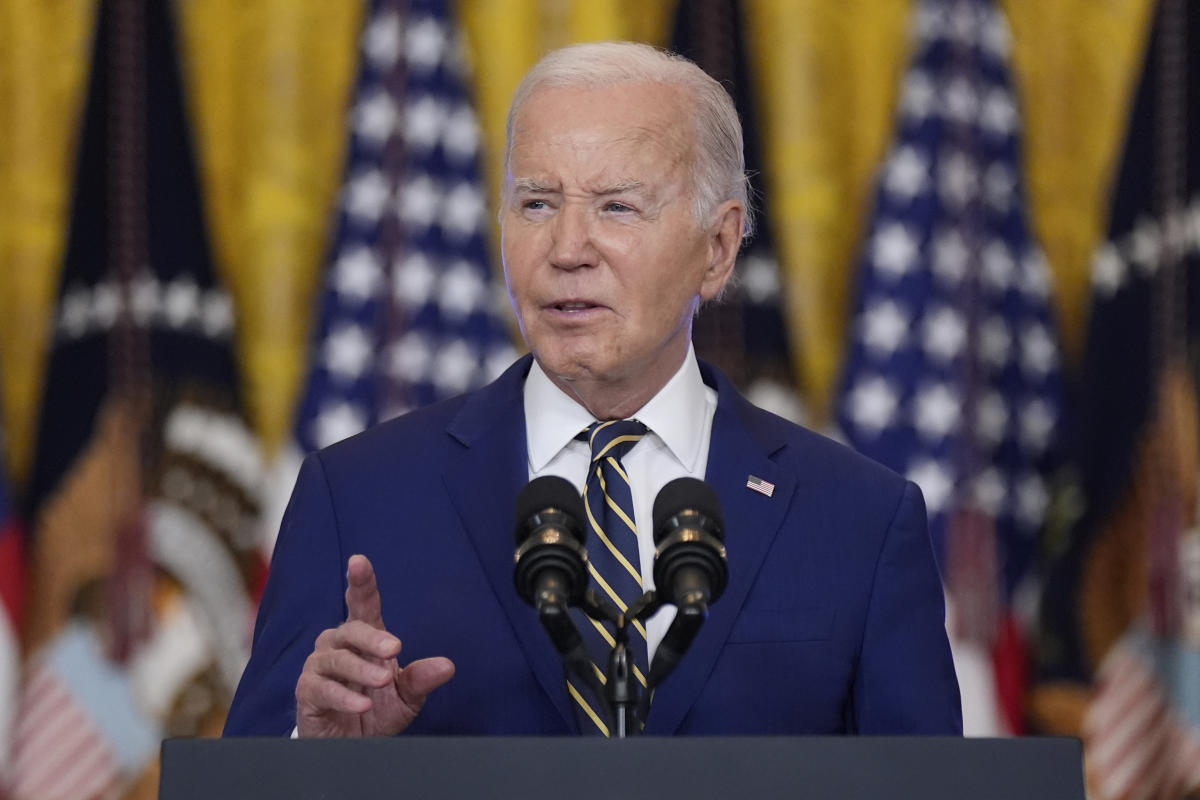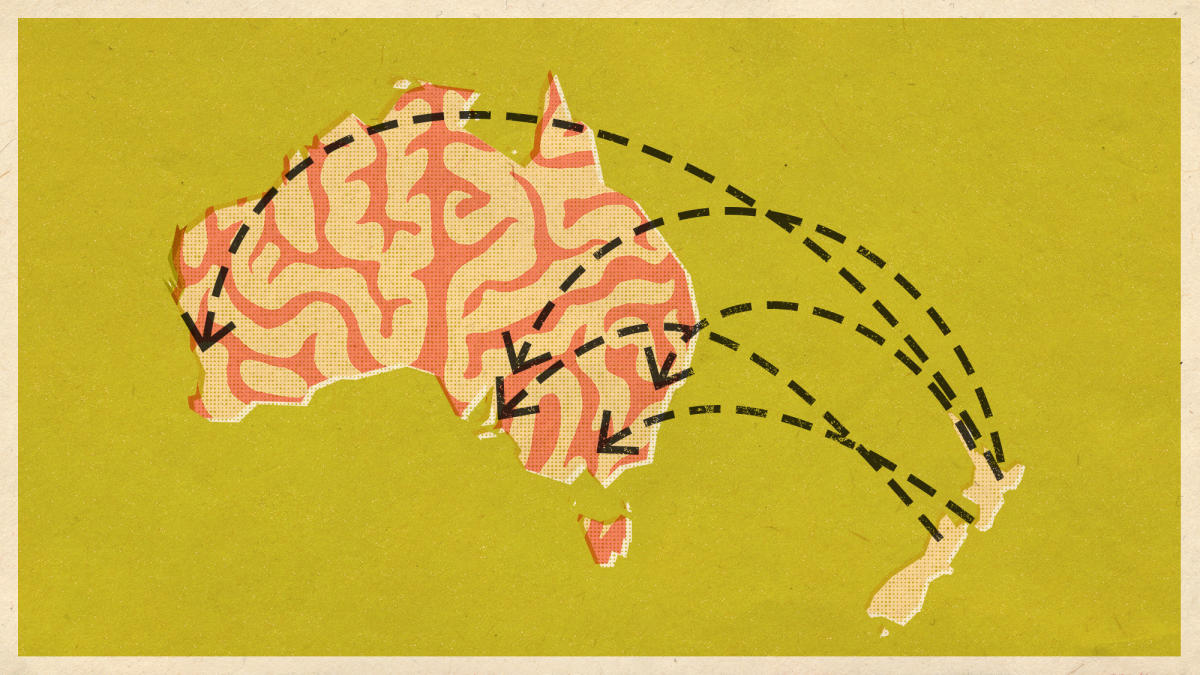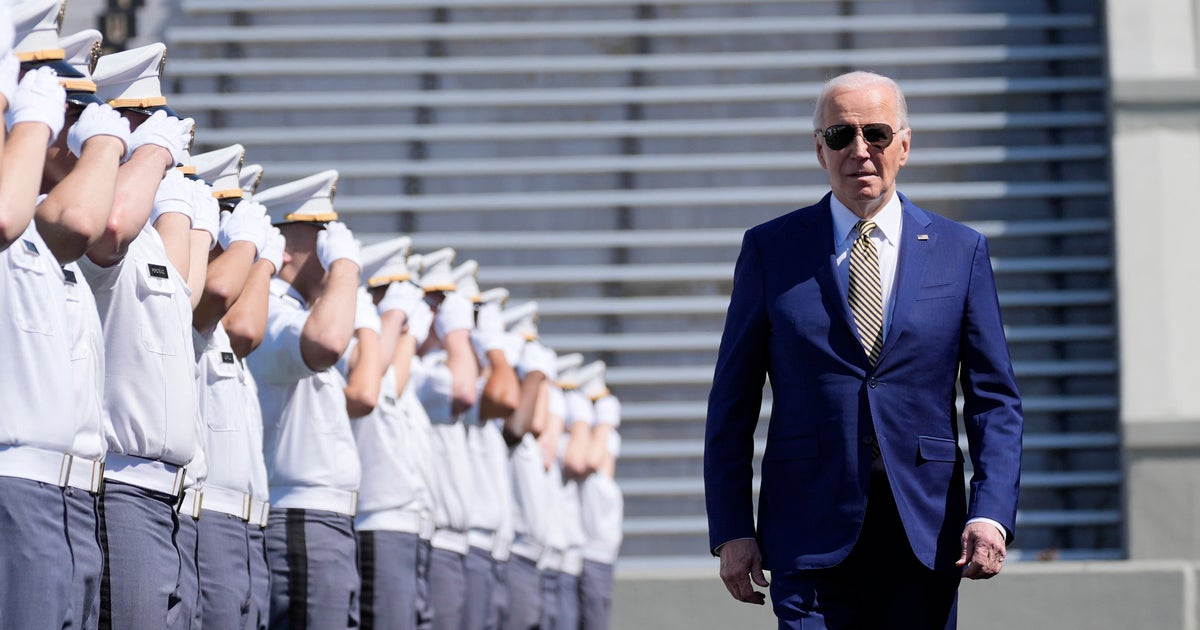President Biden has been courting Kahlil Greene and other young TikTok influencers since taking office, inviting them to celebrations at the White House and policy briefings on Zoom, where Biden and Vice President Kamala Harris have been known to pop in.
There’s a reason this cohort gets so much attention from an 81-year-old president. About a third of adults under 30 get their news from short, punchy videos on TikTok, according to a Pew Research Center survey released in November. Add in Instagram Reels, YouTube Shorts and other platforms, and the reach of social media grows.
Read more: How a drilling project and Israel-Hamas overshadow Biden’s climate record for young voters
Greene, 24, posts videos linking history with present issues about race and gender, drawing about 650,000 followers on TikTok and roughly 146,000 on Instagram. His posts, which include some paid content, have generated 3 million TikTok views in the last three months.
But Biden hasn’t been inviting Greene to White House celebrations in recent months. Greene and some other progressives believe they have been left out because of their criticism; the White House did not respond when asked about it. And Greene isn’t sure whether he would attend anyway. If it’s just a photo op, no thanks. If he can ask tough questions, OK.
Greene’s skepticism exemplifies the challenges Biden and his allies face as they try to navigate a new class of media gatekeepers. Not only are they more prone to go off the campaign’s message than a traditional surrogate, many have also become more jaded in leaders’ experience and more demanding, both politically and financially.
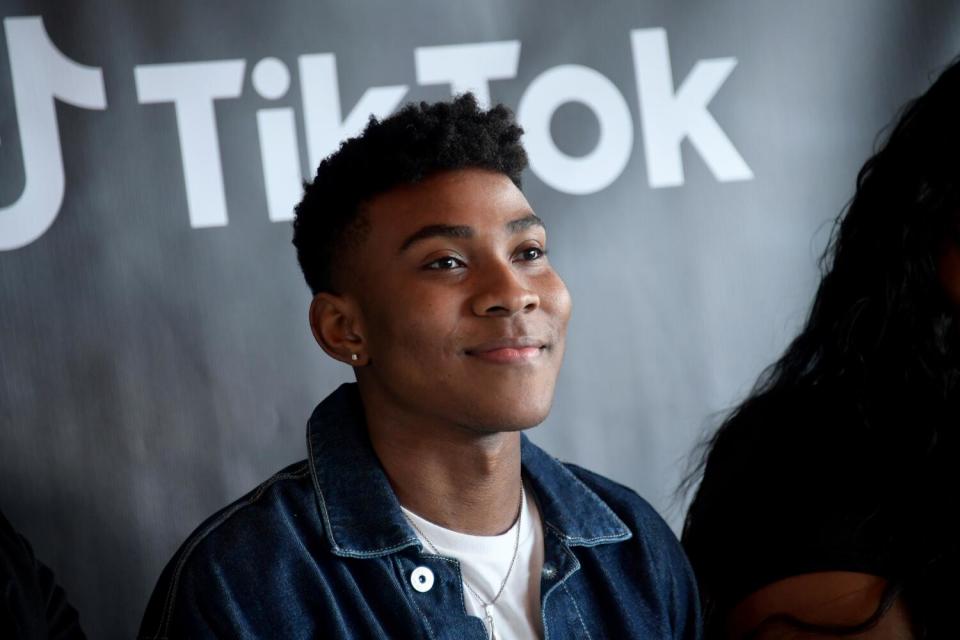
In 2020, TikTok was just starting to bloom as a political town square. Many of the progressive creators were new to politics and united behind the Black Lives Matter movement and their displeasure with then-President Trump and the pandemic.
Read more: Column: Joe Biden’s empathy was his superpower in 2020. Can he find it again in 2024?
Four years later, more than a fifth of the top left-leaning creators on TikTok posted explicitly anti-Biden content — accounting for more than 100 million views during the first four months of this year — according to data from CredoIQ, an analytics firm, that were shared with The Times.
This concentrated group of creators represents a small minority of young voters with an outsize voice, who are mostly angry with Biden’s response to the war between Israel and Hamas, the analysis shows.
But there is a larger universe of users who were already upset with Biden over a law he signed in April that would ban TikTok within a year if the Chinese firm ByteDance fails to sell it. Greene and other progressives are drawing links between the two issues, arguing that the TikTok law is aimed at stifling dissent over the war, a claim the White House disputes.
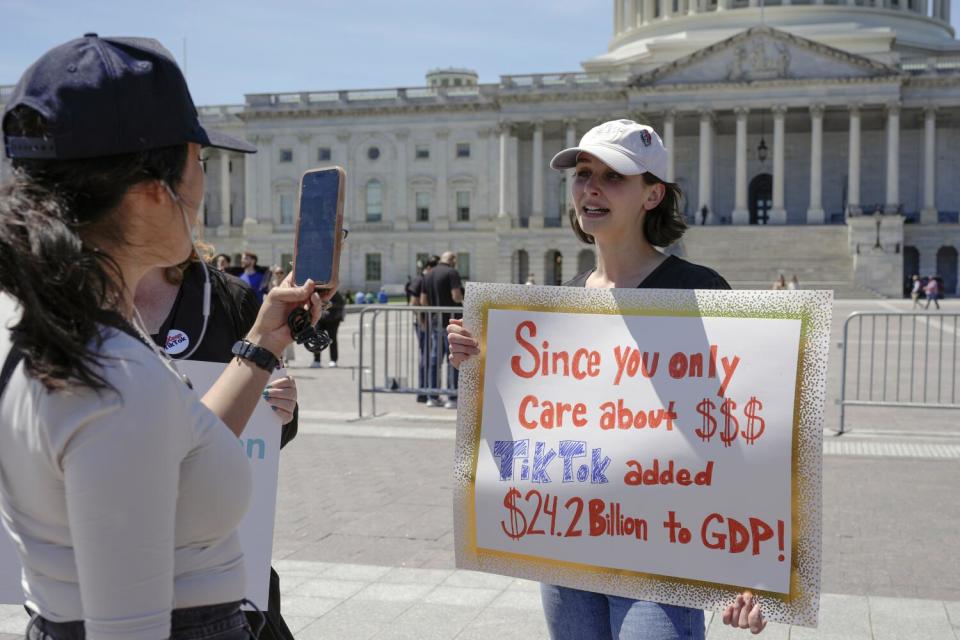

“What I would be concerned about is kind of the wildfire anti-Biden movement leaping from anti-Biden progressives to a larger group of young people,” said Ben Darr, president and founder of CredoIQ.
The larger group is less interested in politics but sees TikTok as their main source of news, entertainment, relationships and education around certain topics, said Darr, who shared his findings with the Los Angeles Times.
A White House spokesperson notes that the bipartisan TikTok law had been in the works before the Israel-Hamas war started and said that the chief concern is over the Chinese government’s ability to access users’ sensitive data and to manipulate the company’s secret algorithms, which control what videos go viral.
Read more: Biden raises millions on West Coast as he says his campaign is underestimated
But if anger over the war and the TikTok law continues to converge online, it could deepen Biden’s trouble with young voters, who are wavering, according to some polls, after supporting the president overwhelmingly in 2020. A majority of voters support the TikTok law, according to a recent ABC News poll. But only 39% of adults younger than 30 think it’s a good idea.
“It’s astonishing and, like, actually something hard — to make Trump have a viable path to becoming president again,” Greene said. But Biden is “actively making decisions that are unpopular.”
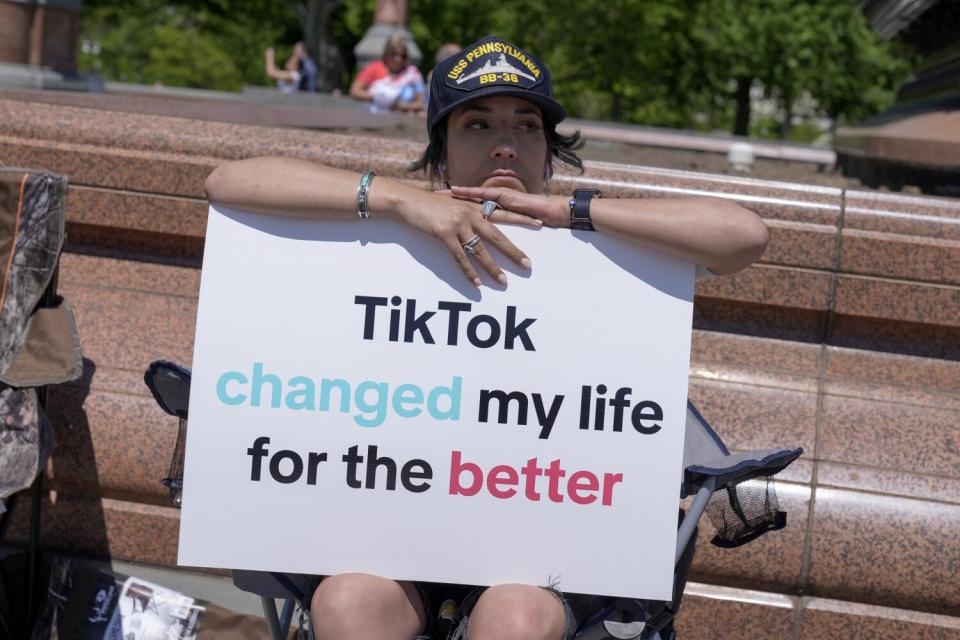

Greene said he will decide who to vote for “as events play out” but won’t reveal his decision on his social media feed.
In the meantime, Trump content is generating about 500 million views a month on the site, compared with more than 300 million for Biden posts, as of late May. And Trump videos are much more likely to be posted by allies than Biden videos, according to CredoIQ data.
That adds to a similar advantage Trump has on Facebook, which reaches an older audience. Conservatives produced more than 70,000 posts about Biden in the first half of this year, compared with about 18,000 posts about Biden from liberals, according to an analysis prepared for The Times by Media Matters for America, a left-leaning group that tracks content.
The Facebook advantage is not new. Trump has been mining the platform since 2016, when he took advantage of the site’s propensity to elevate content that elicits outrage and anger.
TikTok’s younger-skewing audience seemed a better bet for Biden, who put climate policy and racial equity at the center of his agenda. He defeated Trump by 24 percentage points among voters younger than 30 in 2020.
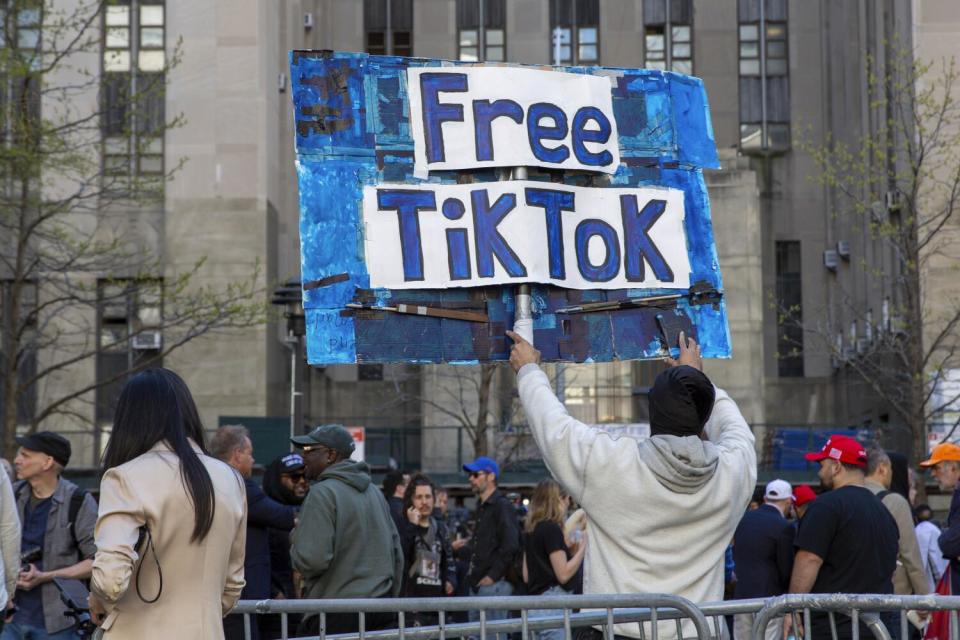

But it wasn’t easy getting there. Biden’s reputation on TikTok was dismal in the summer of 2020, according to Daniel Daks, who consulted for the 2020 campaign and runs a private social media consulting firm called Palette MGMT. Posts with #Trump2020 received 6.2 billion views through the first six months of 2020, while #Biden2020 posts got 703.8 million views, according to an analysis he did at the time for the campaign.
“Republicans tend to have more of a cult of personality” around Trump, whereas Democrats are more policy focused, which creates a disparity on social media, he said.
Read more: As the election nears, Biden pushes a slew of rules on the environment and other priorities
Gen Z voters are also more inclined to shift from booster to activist mode after an election, which puts more pressure on an incumbent, he said.
But he argues that young people, including many critics, will coalesce around Biden as the contrast with Trump draws starker in the coming months.
“It will come organically,” he predicted.
::
Biden has ramped up efforts to accelerate that process as November approaches. The administration invited dozens of influencers to the White House for this year’s State of the Union address, where they recorded selfies from the portico as the president’s motorcade came and went from the Capitol.
The Biden campaign and affiliated committees are spending millions of dollars on dozens of staff members whose jobs involve creating content and building relationships with influencers. The campaign said it does not pay influencers for their posts, but many outside groups that advocate for the environment, voting rights and other Democratic issues do.


Progressive groups that work with social media influencers have been increasing their own engagement substantially since 2020 but say the demands of influencers have grown.
People working in the industry said fees range from $500 to upward of $10,000 for a single-issue social media post (still a fraction of what influencers make working for commercial customers), with many creators retaining agents and negotiating double the rates they charged four years ago. There is also a burgeoning industry of firms devoted to identifying accounts that have the right target audience and compatible message.
NextGen America, a group funded by California billionaire Tom Steyer, has been especially active in using influencers to help Democrats, with plans to work with 900 creators in swing states after an aggressive influencer campaign in the 2022 midterm elections.
“Young voters are not as enthusiastic about the top of the ticket,” said Antonio Arellano, NextGen’s vice president of communications. “We’re leading with the issues as much as we can.”
Read more: Will hackers, trolls and AI deepfakes upset the 2024 election?
The group was one of the first in politics to hire college athletes for a voter registration campaign using new rules that allow student athletes to get paid. Many of the students hired by NextGen to encourage voter registration have only a few thousand followers. But political specialists who work in social media say the most important thing influencers bring to an issue is trust, making so-called micro-influencers valuable.
Audiences on social media tend to distrust institutional sources and may think they have a personal relationship with creators, paying more attention to their informal videos than they would traditional advertisements. That trust can also be helpful in combating online misinformation.
The trade-off is that campaigns can lose some control, because the influencers use their own language and may veer from the campaign’s message, especially if their followers post angry messages in the comment section. Biden has seen that difficulty firsthand, as creators use their platforms to attack his policies on the environment or the Israel-Hamas war.
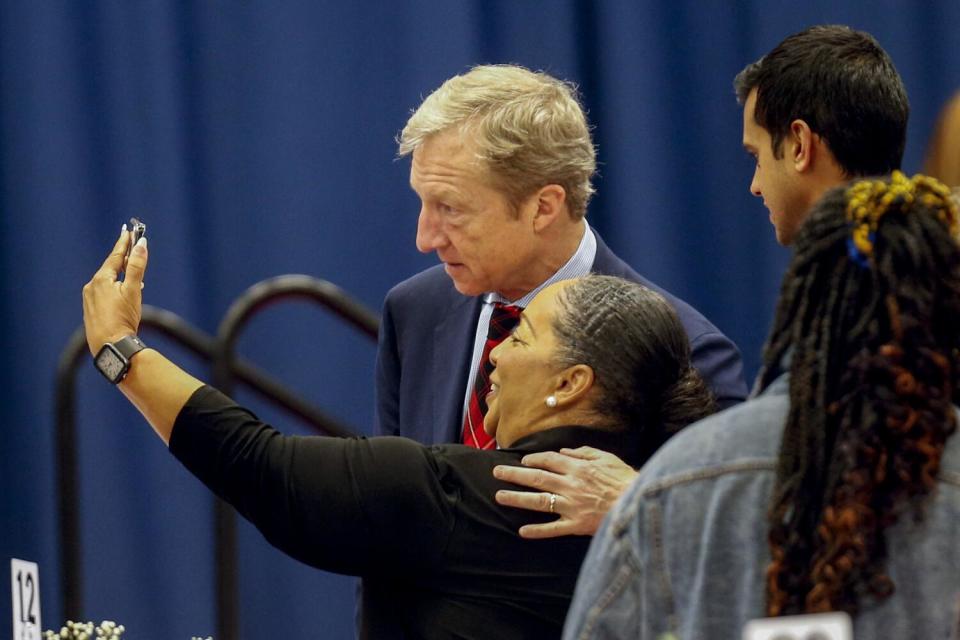

Supporters still see a window for Biden, especially on other issues. Young people want concrete accomplishments, which gives the president a path toward reaching people with more information about his record on the economy, abortion and education, said Jack Lobel, a college student working for a pro-Biden group.
The majority of voters in that age group still place a higher importance on those issues than the Israel-Hamas war, even though young people are at the center of campus protests, according to polls.
The mix of content on TikTok — videos of cats vomiting in a toilet interspersed with people acting silly in their pajamas — can be mystifying for political consultants trying to implant a traditional message. But older people often mistake the platform’s sometimes playful nature for superficiality, Lobel said, adding, “We don’t just want to see politicians dancing on our TikTok.”
Read more: Chatbots’ inaccurate, misleading responses about U.S. elections threaten to keep voters from polls
Biden has his share of unabashed allies such as Harry Sisson, who posts constantly on social media about the Democrats’ policy achievements and the president’s warmth to Sisson’s more than 800,000 TikTok followers. Sisson made a campaign video with former President Obama during the 2022 midterms that helped solidify his status as a go-to influencer for the party.
Sisson doesn’t call himself a journalist but appreciates the Biden White House inviting creators to policy briefings on Ukraine and infrastructure in which the president made a surprise appearance in 2022.
Sisson wants more access for influencers and has little concern that Biden has given fewer interviews than other presidents with traditional news outlets.
Read more: U.S. is bracing for complex, fast-moving foreign threats to elections, FBI director warns
“Folks at the New York Times just have to come to the realization that they are no longer the No. 1 priority,” he said in an interview. “Now, it’s a question of, ‘What is the best way we get this message out,’ and that way is not always the New York Times anymore.”
The 21-year-old New York University senior flew to Racine, Wis., to ask Biden two flattering questions before a campaign event this month as the president was about to get on stage to announce a Microsoft data center.
“You make the job really easy because you do a lot of good stuff, and the other guy, like, really sucks,” Sisson told Biden in one short clip of their meeting that he posted that shows them complimenting each other as they shake hands.
Get the L.A. Times Politics newsletter. Deeply reported insights into legislation, politics and policy from Sacramento, Washington and beyond, in your inbox three times per week.
This story originally appeared in Los Angeles Times.


